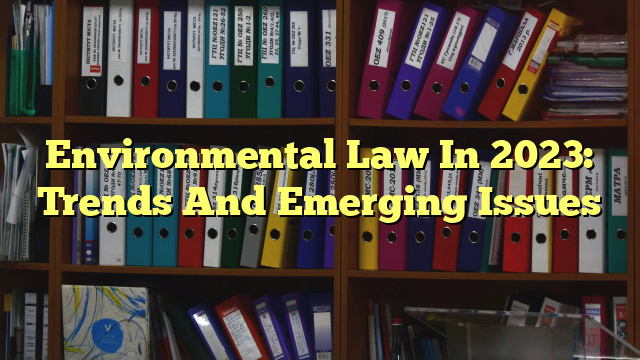Table of Contents
- Sustainability Issues in 2023
- Current Issues in Environmental Policy
- The Top 10 Environmental Issues
- The Three Major Environmental Laws in the US Foundational Environmental and Conservation Laws
Sustainability Issues in 2023
In 2023, sustainability issues are increasingly important as the world continues to face the challenges of climate change, pollution, and resource depletion. With the global population increasing and resources becoming increasingly scarce, it is essential that governments, corporations, and individuals work together to ensure sustainable use of resources and long-term sustainability.
At the global level, governments are looking for ways to reduce emissions and combat climate change. This includes setting targets for emissions reductions, investing in renewable energy sources, and implementing policies to improve energy efficiency. In addition, governments are also introducing new laws and regulations to encourage responsible environmental stewardship, such as carbon taxes and emissions trading.
At the corporate level, companies are making efforts to reduce their environmental impact. This includes introducing environmental management systems, investing in renewable energy sources, and reducing waste. Businesses are also taking steps to improve sustainability by engaging in corporate social responsibility initiatives and partnering with environmental organizations to raise awareness about environmental issues.
Individuals are also playing a role in sustainability. This includes taking steps to reduce their resource consumption, such as using sustainable materials, using less energy, and reducing their waste. Individuals can also support sustainability initiatives through their purchasing decisions, by choosing products that are environmentally friendly and avoiding those that cause unnecessary environmental harm.
Current Issues in Environmental Policy
In 2023, there are a number of current issues in environmental policy. These include the need to reduce emissions to combat climate change, the need to protect and restore ecosystems, and the need to create sustainable development policies.
At the global level, the Paris Agreement is the most notable environmental policy in place. The Paris Agreement is an international treaty that sets goals for reducing global emissions and encourages countries to take action to reduce emissions.
At the national level, countries are implementing their own environmental policies. These policies can vary from country to country, but typically involve a mix of emissions reduction targets, renewable energy sources, and environmental protection measures.
At the local level, governments are also implementing environmental policies. These policies can focus on reducing emissions, preserving ecosystems, and encouraging sustainable development.
The Top 10 Environmental Issues
The following are the top 10 environmental issues in 2023:
1. Climate Change: Climate change is the greatest environmental challenge of our time. It is caused by the release of greenhouse gases, such as carbon dioxide, into the atmosphere. Climate change is causing temperatures to rise, extreme weather events to become more frequent, sea levels to rise, and ecosystems to be disrupted.
2. Air Pollution: Air pollution is caused by the release of pollutants into the air, such as particulate matter, chemicals, and other substances. Air pollution can cause health problems, damage ecosystems, and contribute to climate change.
3. Water Pollution: Water pollution is caused by the release of pollutants into waterways, such as chemicals, sewage, and oil. Water pollution can cause health problems, disrupt ecosystems, and damage drinking water supplies.
4. Deforestation: Deforestation is the process of clearing forests for human use. It can cause biodiversity loss, damage ecosystems, and contribute to climate change.
5. Ozone Depletion: Ozone depletion is caused by the release of chemicals, such as chlorofluorocarbons, into the atmosphere. Ozone depletion can cause health problems, damage ecosystems, and cause climate change.
6. Marine Pollution: Marine pollution is caused by the release of pollutants into the oceans, such as plastic waste, oil, and sewage. Marine pollution can cause health problems, disrupt ecosystems, and damage aquatic life.
7. Resource Depletion: Resource depletion is caused by the overuse of natural resources, such as water, land, and minerals. Resource depletion can cause environmental degradation, disrupt ecosystems, and cause economic damage.
8. Nuclear Waste: Nuclear waste is the by-product of nuclear power plants. It is highly radioactive and can cause health problems,

